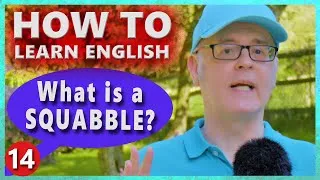Будь ласка, двічі клацніть на англійські субтитри нижче, щоб відтворити відео.
New videos
Цей сайт познайомить вас з відеороликами YouTube, корисними для вивчення англійської мови. Ви побачите уроки англійської мови, які проводять першокласні викладачі з усього світу. Двічі клацніть на англійських субтитрах, що відображаються на кожній сторінці відео, щоб відтворити відео з цієї сторінки. Субтитри прокручуються синхронно з відтворенням відео. Якщо у вас є коментарі або побажання, будь ласка, зв'яжіться з нами за допомогою цієї контактної форми.







